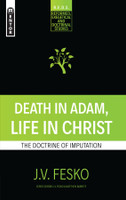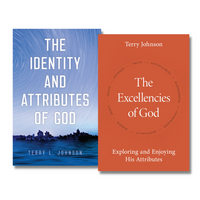
The Death of Death in the Death of Christ (Owen)
Description
The Death of Death in the Death of Christ is a polemical work, designed to show, among other things, that the doctrine of universal redemption is unscriptural and destructive of the gospel. Those who see no need for doctrinal exactness and have no time for theological debates which show up divisions between Evangelicals may well regret its reappearance. Some may find the very sound of Owen’s thesis so shocking that they will refuse to read his book at all.
But there are signs today of a new upsurge of interest in the theology of the Bible: a new readiness to test tradition, to search the Scriptures and to think through the faith. It is to those who share this readiness that Owen’s treatise is offered, in the belief that it will help us in one of the most urgent tasks facing Evangelical Christendom today-the recovery of the gospel.
Table of Contents:
Book I
I. In general of the end of the death of Christ, as it in the Scripture proposed
II. Of the nature of an end in general, and some distinctions about it
III. Of the agent or chief author of the work of our redemption, and of the first thing distinctly ascribed to the person of the Father
IV. Of those things which in the work of redemption are peculiarly ascribed to the person of the Son
V. The peculiar actions of the Holy Spirit in this business
VI. The means used by the fore-recounted agents in this work
VII. Containing reasons to prove the oblation and intercession of Christ to be one entire means respecting the accomplishment of the same proposed end, and to have the same personal object
VIII. Objections against the former proposal answered
Book II
I. Some previous considerations to a more particular inquiry after the proper end and effect of the death of Christ
II. Containing a removal of some mistakes and false assignations of the end of the death of Christ
III. More particularly of the immediate end of the death of Christ, with the several ways whereby it is designed
IV. Of the distinction of impetration and application – The use and abuse thereof; with the opinion of the adversaries upon the whole matter in controversy unfolded; and the question on both sides stated
V. Of application and impetration
BOOK III
I. Arguments against the universality of redemption – The two first; from the nature of the new covenant, and the dispensation thereof
II. Containing three other arguments
III. Containing two other arguments from the person Christ sustained in this business
IV. Of sanctification, and of the cause of faith, and the procurement thereof by the death of Christ
V. Being a continuance of arguments from the nature and description of the thing in hand; and first, of redemption
VI. Of the nature of reconciliation, and the arguments taken from thence
VII. Of the nature of the satisfaction of Christ, with arguments from thence
VIII. A digression, containing the substance of an occasional conference concerning the satisfaction of Christ
IX. Being a second part of the former digression – Arguments to prove the satisfaction of Christ
X. Of the merit of Christ, with arguments form thence
XI. The last general argument
Book IV
I. Things previously to be considered, to the solution of objections
II. An entrance to the answer unto particular arguments
III. An unfolding of the remaining texts of Scripture produced for the confirmation of the first general arguments for universal redemption
IV. Answer to the second general argument for the universality of redemption
V. The last argument from Scripture answered
VI. An answer to the twentieth chapter of the book entitled, “The Universality of God’s Free Grace,” etc., being a collection of all the arguments used by the author throughout the whole book to prove the universality of redemption
VII. The removal of other remaining objections. Some few Testimonies of the Ancients
Endorsement
‘It is safe to say that no comparable exposition of the work of redemption as planned and executed by the Triune Jehovah has ever been done since Owen published his in 1684. None has been needed. Owen’s interpretation of the texts is sure; his power of theological construction is superb; nothing that needs discussing is omitted, and no arguments for or against his position have been used since his day which he has not himself noted and dealt with. Owen’s work is a constructive broad-based biblical analysis of the heart of the gospel, and must be taken seriously as such. Nobody has a right to dismiss the doctrine of the limitedness of the atonement as a monstrosity of Calvinistic logic until he as refuted Owen’s proof that it is part of the uniform biblical presentation of redemption, clearly taught in plain text after plain text. And nobody has done that yet.’ — J.I. Packer
Author
John Owen (1616–1683), amongst the best known of the Puritans, was an English Puritan who served as vice-chancellor of Oxford University and pastor of congregations in Coggeshall and London. His writings continue to be widely read and greatly appreciated to this day.





